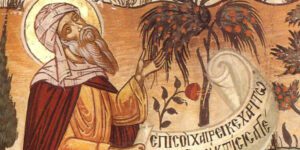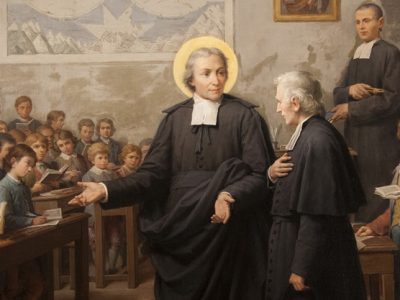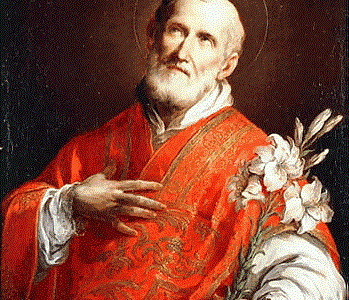
John Damascene, also called John of Damascus, is one of the most influential Christian theologians in church history. His writings influenced many Christian intellectuals including Saint Thomas Aquinas. He is sometimes called the last of the Church Fathers.
Born in Damascus, Syria, to a wealthy Christian family in 657, John was well educated. He succeeded his father as chief financial administrator to the Muslim ruler of Damascus. But heeding a call to religious life, John resigned his office and divided his wealth among his relatives, the Church, and the poor. He was received into a monastic community near Jerusalem, became a monk and was later ordained a priest.
John invested much of his time, energy, and considerable intellectual gifts contributing to the fields of law, theology, philosophy, and music. He wrote prodigiously on issues of faith and in defense of the doctrines of the Church. It has been said that John possessed a profound Catholic sacramental vision. “The one who seeks God continually will find him,” he wrote, “for God is in everything.”
In the early 8th century AD, a movement opposed to the veneration and public display of religious icons gained some acceptance by Christian emperors, and edicts were issued ordering the destruction of statues, and other representations of Christ, Mary, and the saints. John penned a passionate defense of Christian artifacts in three separate publications that became popular among the Christian populace.
John’s spirited defense of the use of holy images was condemned by the pro-iconoclastic Christian emperors but they were unable to take any action against him, as they did other defenders of icons because, ironically, John lived under the protection of Muslim rule. His writings would later play an important role and prove persuasive during the Second Council of Nicaea, which was convened to settle the dispute over religious artifacts.
Saint John Damascene died at his monastery in approximately 749, and in1890 he was declared a Doctor of the Church by Pope Leo XIII. His feast day is December 4.



